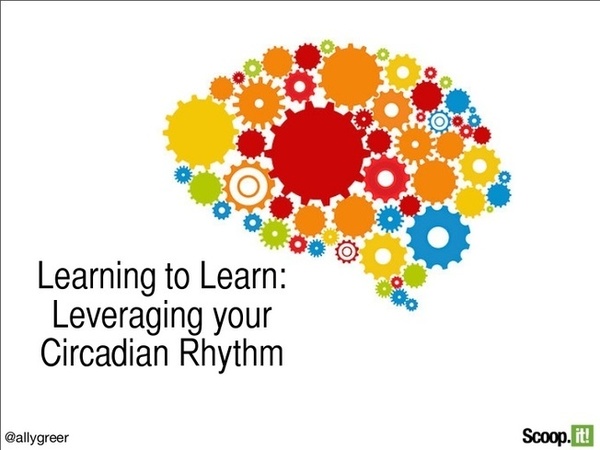 Your new post is loading...
Your new post is loading...

#learningtolearn
A few short months ago, I made a decision: I was going to learn to learn. Whether this meant learning how to learn or learning for the sake of learning, I wasn't (and still am not) quite sure. Maybe it’s both. What I did know is that both of those goals are extremely important in today's world, a place where endless new information rests - quite literally - at our fingertips.
Here, you will find a collection of smart content. Things that inspire, things that teach, things that intrigue.
What makes your gears turn? Use the Suggest button above to share pieces that taught you something, changed your life, or simply sparked a thought in the back of your mind. Much like exercising our bodies in the gym, exercising our brains is significantly more rewarding when done with others. Share your best, smartest content with #learningtolearn.

10 Strategies Quick Learners Use To Pick Up Anything
Speed-learners provide their tips and tricks for mastering any material fast.
These are some amazing strategies that are probably often overlooked by most professionals (and even students).
I'm feeling particularly inspired by the Tim Ferris method of "finding the nearest silver medalist and ... grilling on the technique" as a way of learning a new sport, as well as the "5 Whys" of Eric Ries that help get to the bottom of almost any technical problem and figure out a way to solve it.
In addition to learning by doing, keeping a positive attitude, and finding an accountability buddy, I'd add keeping a notebook with you at all times, as you never know when you'll have the opportunity to ask someone about their experience and learn something new.
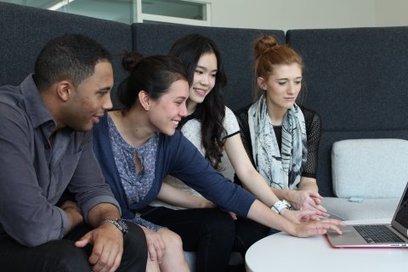
19 Websites That Will Make You Smarter
SomeWant to stop wasting time on the internet? Here is a list of sites that will help you learn anything.
Some great sites in here, including a few of my favorites, Quora, Life Hacker and Lumosity.
Of course, I would add Scoop.it as you can search at the top of the dashboard or the categories you'd like to learn within and find dedicated organized collections on any topic you can imagine.
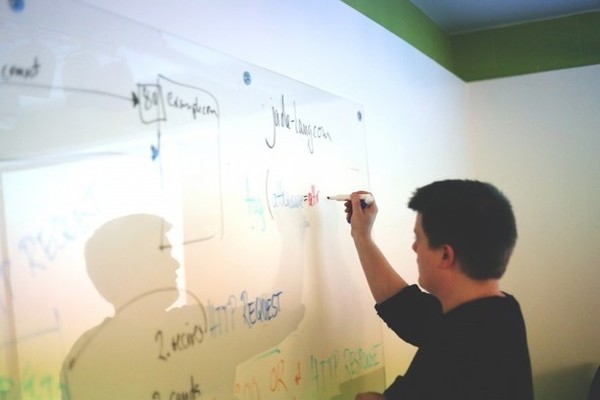
How To Look Like an Expert From Day One
Working in the world of entrepreneurs and startups has given me a whole new appreciation for the phrase "fake it 'til you make it." This isn't to say that everyone who is just getting started in their companies or careers in general is completely faking it, but just that they are doing the right things to position themselves correctly before they might actually be a full-fledged expert.
In this post on Entrepreneur.com, the extremely smart Dorie Clark tackles a question that almost all of us have tried to figure out at one point or another: how do I make myself seem like I know what I'm doing when I'm just getting started?
"Fake it til ya make it." Establish yourself online and publicly for what you know on your way to becoming known as an expert.
Great tips inspired by Dorie Clark

The Job Skill You Need (That Nobody Talks About)
Feeling frustrated, exhausted, or burnt out? You might be missing this one essential job skill.
I definitely struggle with the ability to prioritize and decide what needs to be done now and what can wait until later. As a multi-functional employee of a startup, my tasks can sometimes seem like they're all important and none can wait until later. I've found, though, that when I go into work with this mindset, I ultimately end up achieving less than I would have if I had prioritized beforehand.
How do you prioritize and figure out what can be put on the back burner?
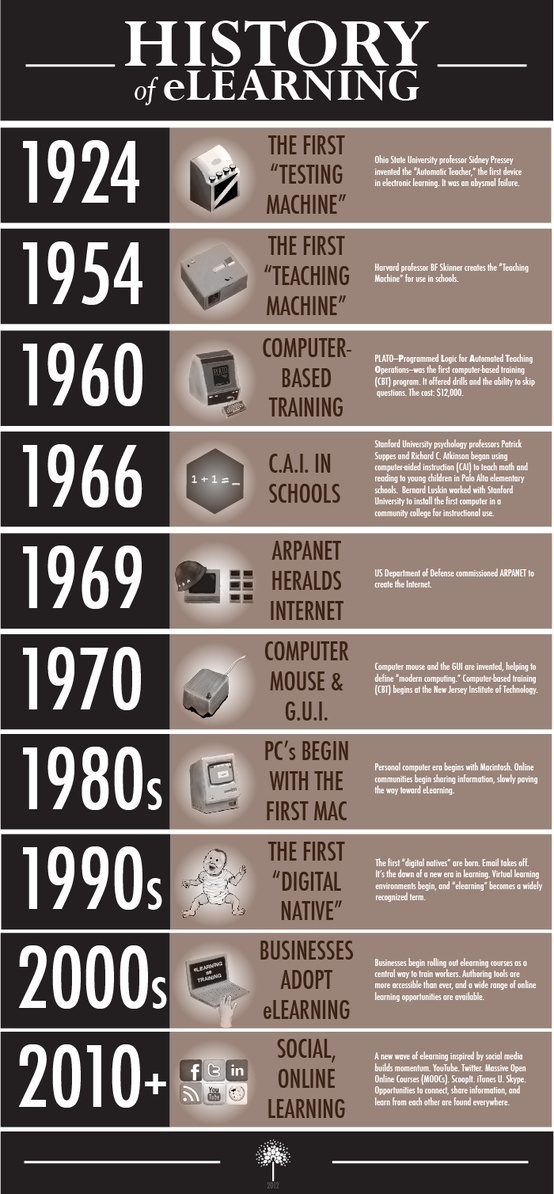
The History of eLearning
e-Learning is awesome. The internet helps us learn in so many more advanced ways than our predecessors could have ever imagined.
One of the coolest parts about learning online is the visualization of information to make it easier to consume, more understandable, and more exciting! Here's an awesome infographic that goes through a brief history of e-learning, starting in 1924 with an Ohio State University professor who invented the "testing machine," and leading all the way to the present with tools like YouTube, Twitter, iTunes U, and Scoop.it.

The Path to Real-World Knowledge
It may be hard to get into learning again after being out of any type of educational establishment for some time.
It is true that humans these days enjoy having everything delivered to them and served up on a silver platter. When it comes to information and new knowledge, though, a little more effort is necessary.
After our years of formal education are over, it's infinitely more difficult to find the time, motivation, and drive to continue the learning process.
What keeps you motivated? How do you ensure your status as a perpetual learner doesn't fade away?
Guest post by Evan Ponter

el juego es un contexto valioso para el aprendizaje

La importancia de los juegos en la educación

I had to zoom this to read it, but it was well worth it!

Become a life-long learner
Our parents, our friends and others are constantly telling us we are doing something wrong—because we are. We mess up daily. We’re just lucky enough to be surrounded by people who let us know what we’re doing wrong, and help us come up with a plan to fix it. We have no idea what our path will be, but we have and still are building a team that can adapt with us. One of our company mottos we got from Jim Collins’ book, "Good to Great": “Get the right people on the bus, the wrong people off the bus and the right people in the right seats.”
The co-founders of clusterFlunk, a Silicon Prairie startup, stress the importance of being a lifelong learner. They cleverly point out that the most successful people "didn't become successful overnight' and "consistently surrounded themselves with people who are more intelligent than them."
These are traits of perpetual students - the ones who never stop opening their minds to new things and setting aside the time to expand their knowledge.
In the words of Nelson and Dallago, "Everyone is busy. Successful people make the time to learn."
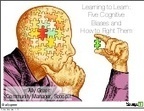
5 Cognitive Biases and How to Fight Them
One of the key activities associated with learning is exploring and understanding the way the human brain functions, and using the results of this to properly h
Show your brain who's boss and beat cognitive biases that can harm your critical thinking skills!

57 Cognitive Biases That Screw Up How We Think
The Galatea effect, attentional bias, recency, and more. ;
Reading about how brains work is nothing short of fascinating. Here are some of the most intersting:
Attention bias: When you only consider a few options or outcomes even though there are truly many more possibilities.
Backfire effect: When you reject evidence that proves you wrong even though you know the evidence is correct.
Bias blind spots: Failure to recognize your cognitive biases (how meta!)
Frequency illusion: When something you just learned about suddenly appears everywhere.
Reactance: Doing something opposite what you're asked to do to demonstrate your freedom of choice.

Reading about how brains work is nothing short of fascinating. Here are some of the most intersting:
Attention bias: When you only consider a few options or outcomes even though there are truly many more possibilities.
Backfire effect: When you reject evidence that proves you wrong even though you know the evidence is correct.
Bias blind spots: Failure to recognize your cognitive biases (how meta!)
Frequency illusion: When something you just learned about suddenly appears everywhere.
Reactance: Doing something opposite what you're asked to do to demonstrate your freedom of choice.
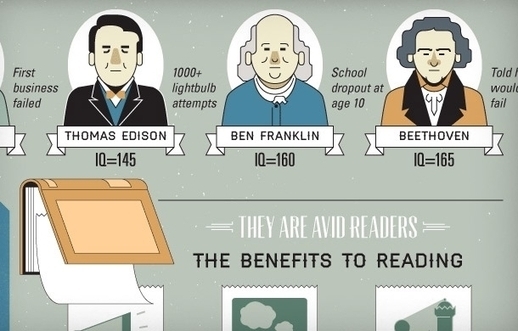
The Habits of the World's Smartest People
You don't have to be a genius to act like one. Pick up some of these habits of people with high IQs.
Metacognition: thinking about thinking.

I don't think those habits will make you smart, but I love the graphic!


